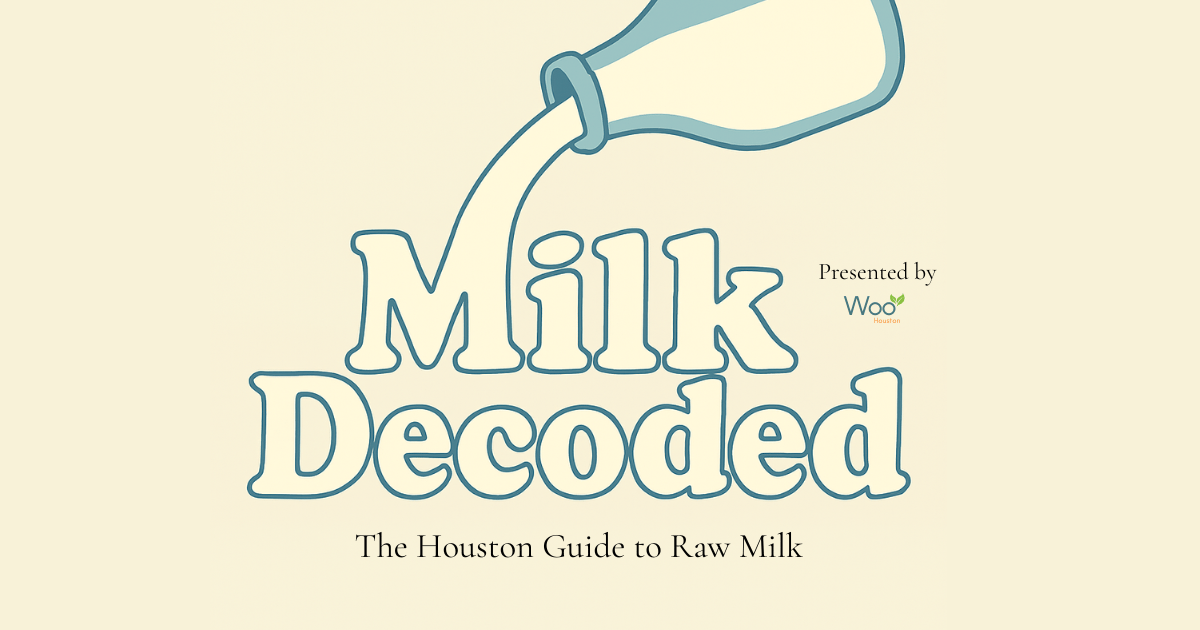The world of milk has expanded far beyond that of a traditional gallon of whole cow’s milk. Not only are there non-dairy options like almond, oat, cashew, and so on, but there are endless varieties of cow milk as well. Beyond taste and price, understanding the science, safety, and nutritional value behind each option can help you make an informed choice.
Reading the Labels
“USDA Organic” – This label means that the cow this milk comes from is fed a completely organic diet, isn’t given any synthetic hormones, and is raised in conditions that promote the health of the cow, and allow the cow access to a pasture.
“Grass-Fed” – This means that the cow is fed primarily grass, which is a far more nutritious diet for the cow, and in turn it produces higher quality milk that is more nutritious for the consumer.
“Non-GMO Project Verified” – It’s in the name; the cow is fed non-genetically modified feed, meaning the product of the milk is natural and not contaminated by unnatural ingredients.
Types of Milk and What They Mean
Organic, grass-fed cow’s milk: It’s nutritious, natural, and the animals are treated far better.
Grass-fed A2 milk: It’s often easier to digest because the cows don’t produce the same irritating proteins and sugars as other dairy cows, which means that often even people with lactose intolerance can drink A2 milk.
Goat’s milk: Goat’s milk is actually the closest type of milk to human milk, which means it’s easier on our bodies because the proteins are similar to what humans were created to consume.
Nut milks: While they lack the vitamins, fibers, and nutrients cow’s milk can provide, milks like almond or oat milk are a good alternative. But watch out, because there are often added sugars, so read the label.
Raw Milk vs. Pasteurized Milk
Raw milk is milk in its most natural state, left unpasteurized rather than heated to kill bacteria. Advocates highlight its rich flavor, creamier texture, and potential benefits from naturally occurring enzymes and microflora. While it carries a higher risk of foodborne illness, choosing a trusted, licensed Texas dairy significantly reduces these concerns. Unlike many states, Texas allows the sale of raw milk directly from certified farms, making it possible to enjoy this traditional option safely when sourced responsibly.
Where to Get Raw & A2 Milk in Houston
Central City Co-op
Through their membership program, Central City Co-op serves as a pick-up point for raw & A2 cow’s milk, as well as raw goat’s milk via dairies like The Jersey Barnyard (La Grange, TX) and Dapper Goat Dairy (Waelder, Texas).
Website: https://centralcityco-op.com/
Victoria’s Natural Market & Farm
They offer raw milk pick-ups (The Jersey Barnyard raw cow’s milk, raw goat’s milk) via an online co-op. Great for folks in Cypress, Tomball, or The Woodlands.
Website: https://victoriasnaturalmarket.com/raw-milk-pick-up
Major’s Farm TX
Has pickup/delivery of A2 cow milk.
Website: https://www.majorsfarmtx.com/
Blessings Ranch
They work with Stryk Jersey Farm (Schulenburg, TX) to provide raw A2 Jersey cow’s milk via pre-orders. Limited availability so it helps to follow their schedule closely.
Website: https://blessingsranchtx.com/milk/
*We recommend calling ahead to confirm availability and delivery schedules
We want to provide timely and relevant information to our readers. Have something you want us to cover? Want to partner? Send us an email at [email protected].
Was this post forwarded to you? Sign up here for the Weekly Woo - our weekly newsletter with tips, tricks, and recommendations for all things holistic health in Houston.
